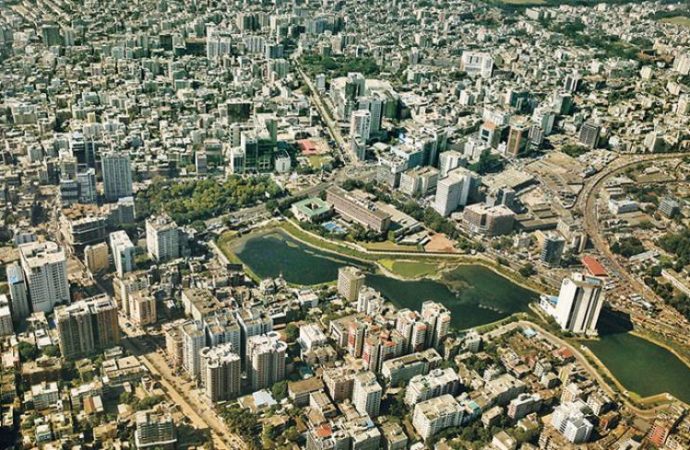Dhaka city does not rank second in the world in terms of air pollution, as some news reports have recently suggested.
Although particulate pollution levels are quite high in the capital, World Health Organisation’s numbers say it is 44th among the cities it monitors, in terms of fine particle (PM2.5) pollution. In terms of PM10, or coarse dust pollution, it ranks 71st.
WHO continuously collects data on particle levels in air across the world from various sources. The data and summary reports can be seen here.
The Guardian in a recent news article visualised some of the data, ranking the cities based on their level of pollution. One of the graphs, that ranked selected Asian cities, showed Dhaka in the second position. This was misinterpreted as a global ranking.
According to WHO data, the city with the most polluted air in the world is Zabol, Iran for PM2.5 and Onitsha, Nigeria for PM10.
However, this is no reason to celebrate. As the Dhaka Tribune has previously reported, PM2.5 and PM10 levels in the city are 8-13 times higher over the year than what experts deem safe.
It goes up in the dry seasons of winter and summer, peaking in February.
India and Bangladesh have experienced the steepest increases in air pollution levels since 2010. Indian cities of Gwalior, Allahabad, Patna, Raipur and Delhi are in the top 10 on WHO’s list.
This is bad news for Bangladesh, because southwesterly winds regularly bring down trans-boundary pollution here from North India and even as far as Iran. A recent study by Bangladeshi researchers in Gazipur found fine particles from Iran and Middle East and heavier dust from north and central India in the air there.
This is only the account of particulate pollution. The air in Dhaka is subject to other forms of pollution, in particular, gases emitted from vehicles and industry.
The government’s Clean Air and Sustainable Environment Project (CASE) Director Munjurul Hannan Khan told the Dhaka Tribune that although Bangladesh has a high PM2.5 concentration, the other five variables of air have never crossed tolerable levels.
He blamed the ongoing and unplanned construction in Dhaka city for the rise in air pollution.
“The city corporations should have taken steps to reduce pollution,” he added.
Source: Dhaka Tribune










